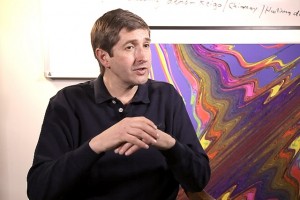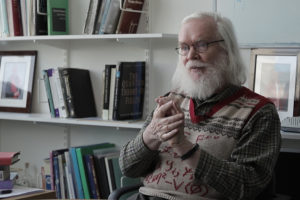The stagnation of the glacial Arctic Ocean
The new research suggests that deep water layers may have played a role in ending the last glacial period in t...
What are the advantages of using proton-proton collider? What are the properties of Higgs boson? Senior Research Scientist at MIT Department of Physics Frank Taylor speaks on how Large Hadron Collider will probe the physics beyond the Standard Model.
It turns out that the Superconducting Super Collider in the Unites States met its political fate in 1993 but the Large Hadron Collider continued in Europe and it then developed into a machine, which now is operating and it’s producing a huge amount of data and it is a part of that dream of going to very high energies needed to study questions involving the Standard Model and looking beyond the Standard Model. It’s always been the story of high energy physics built into its name that the higher the energy you have the better of you have.
The making of a proton-proton collider is the cheapest and most practical way to get to high energies, because protons are relatively easy to accelerate and they’re relatively easy to collide, and they’re abundant. Electrons and positrons are beautiful — a very clean final state when they interact — but they are very difficult to handle at high energies, so it was obvious that the experimental community would go into making a proton–proton collider.
The Higgs is the very pinnacle of Standard model, it was predicted way back in early 60’s and without the Higgs there would be a number of difficulties in the Standard Model. There would be cross-sections, for example, that would become infinite at very high energies, there would be lots of other things, that needed to be explained. But the Higgs itself explains a tremendous amount, so the discovery of the Higgs was one of the outstanding questions of high energy physics.

The new research suggests that deep water layers may have played a role in ending the last glacial period in t...

Physicist Ronald Walsworth on quantum mechanical transitions inside atoms, blue and red shift for GPS, and use...

Physicist John Ellis on the history of particle physics, the properties of the Standard model particles and wh...